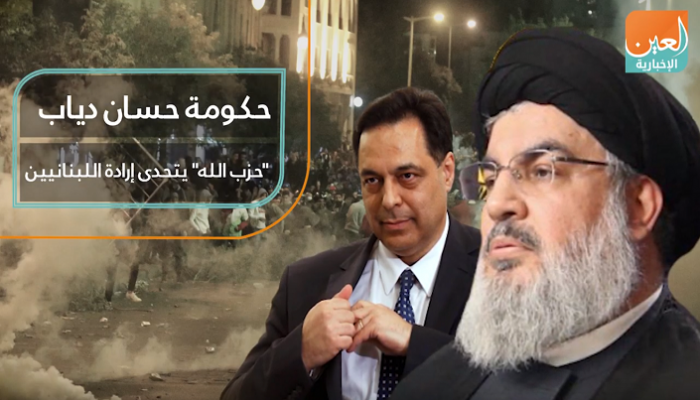In a surprise announcement Lebanon’s outgoing Prime Minister Hassan Diab who was picked by Hezbollah and its allies to head the government says he fears for his life after trying – and largely failing – to implement a host of anti-corruption measures during his short period in office. The reason for the surprise is the fact that during the past 15 years the only party that has been accused of assassinating politicians is Hezbollah . But analysts claim that Diab whose government failed to implement any of the reforms and defaulted on Government loans for the first time ever and failed to prevent the port explosion is known for exaggerating his accomplishments

Beirut, Lebanon – Lebanon’s outgoing Prime Minister Hassan Diab says he fears for his life after trying – and largely failing – to implement a host of anti-corruption measures during his short period in office.
Asked during a briefing with journalists on Tuesday if he feared for his life, Diab replied, after a long pause: “I guess I do.”
He did not provide any evidence of threats on his life.
The question came after Diab spoke about repeated attempts by various interest groups to thwart what he characterised as reform efforts by his government, which secured the confidence of parliament in February but resigned less than six months later after the deadly explosion at Beirut’s port.
Lebanon has a history of politically motivated assassinations, with dozens of officials and journalists attacked since the early 2000s, mostly for opposing the Syrian regime – a power broker that deployed its army in Lebanon for 30 years until 2005 – and the Iranian backed Hezbollah militant , the regime’s strongest ally in Lebanon, which is regarded as a terrorist organization by Several Arab and Western nations
Most prominent was the 2005 assassination of former Prime Minister Rafik Hariri, after he sought to contain Syria’s influence.
‘Insider-outsider’
Diab – a little-known academic until he was picked by Hezbollah and its allies to head a government in February – is no Hariri. But he has cast himself as a man confronting a deeply entrenched “regime of corruption” in Lebanon.
He is – by his own account – an insider-outsider prime minister who is dead-set on fighting the corruption of the ruling class, even though that same ruling class chose him for the job.
Diab frequently took the so-called “regime of corruption” to task for plundering state coffers and ultimately creating the conditions that led to the August explosion that killed about 200 people and injured more than 6,500 others. But he never publicly named those who constitute that regime and still declines to do so. Even though he knew about the Ammonium Nitrate two weeks before the explosion , he did nothing about it and the never even went to the port to see for himself what exactly happened .
“Every time we tried to fight corruption we got a lot of pushback,” he complained on Tuesday, noting that ministers had faced resistance even when trying to gather information on public records.
“Our cabinet adopted a decision with seven measures to fight corruption but we were fought on it … The measures include collecting public domain data related to public servants such as director generals, ministers etc,” he said, adding the process was ongoing with “handicaps”.
Lebanon’s public administration has been heavily captured by an entrenched elite, who have enjoyed vast influence over the state since a civil war that ended in 1990.
Their corruption and mismanagement have spurred a severe financial crisis that now requires an injection of billions of dollars in aid. But international donor nations and organisations such as the International Monetary Fund, have said no aid will flow without reforms that promote increased transparency and accountability.
Central bank audit
One of those measures is a forensic audit of the Central Bank. Originally approved in April, it was finally contracted to New York-based Alvarez & Marsal (A&M) in September. But last week the audit collapsed, when A&M withdrew, citing the central bank’s failure to provide the information they needed for the audit. Finance minister Ghazi Wazni who represents Speaker Nabih Berri , a Hezbollah ally was reportedly behind the reasons why the the Central bank did not provide all the information needed by A &M
Now a new government will likely have to be formed before the audit can resume. But Prime Minister-designate Saad Hariri himself has struggled to make progress in the month since he was tasked with forming a government.
And hopes for a far-reaching audit under Hariri are dim: the three-time prime minister is a key figure in Lebanon’s ruling class and a primary backer of 27-year Central Bank Governor Riad Salameh. Last year, Hariri resigned in the face of unprecedented protests calling for the removal of the ruling class, only to return this year.
Asked how he felt about potentially remaining the caretaker prime minister for a longer period, Diab responded: “I hope not. Because the Lebanese cannot stay like this … Decisions have to be made and as a caretaker government we cannot convene, by law to make such cabinet decisions”.
ALJAZEERA

Leave a Reply
You must be logged in to post a comment.